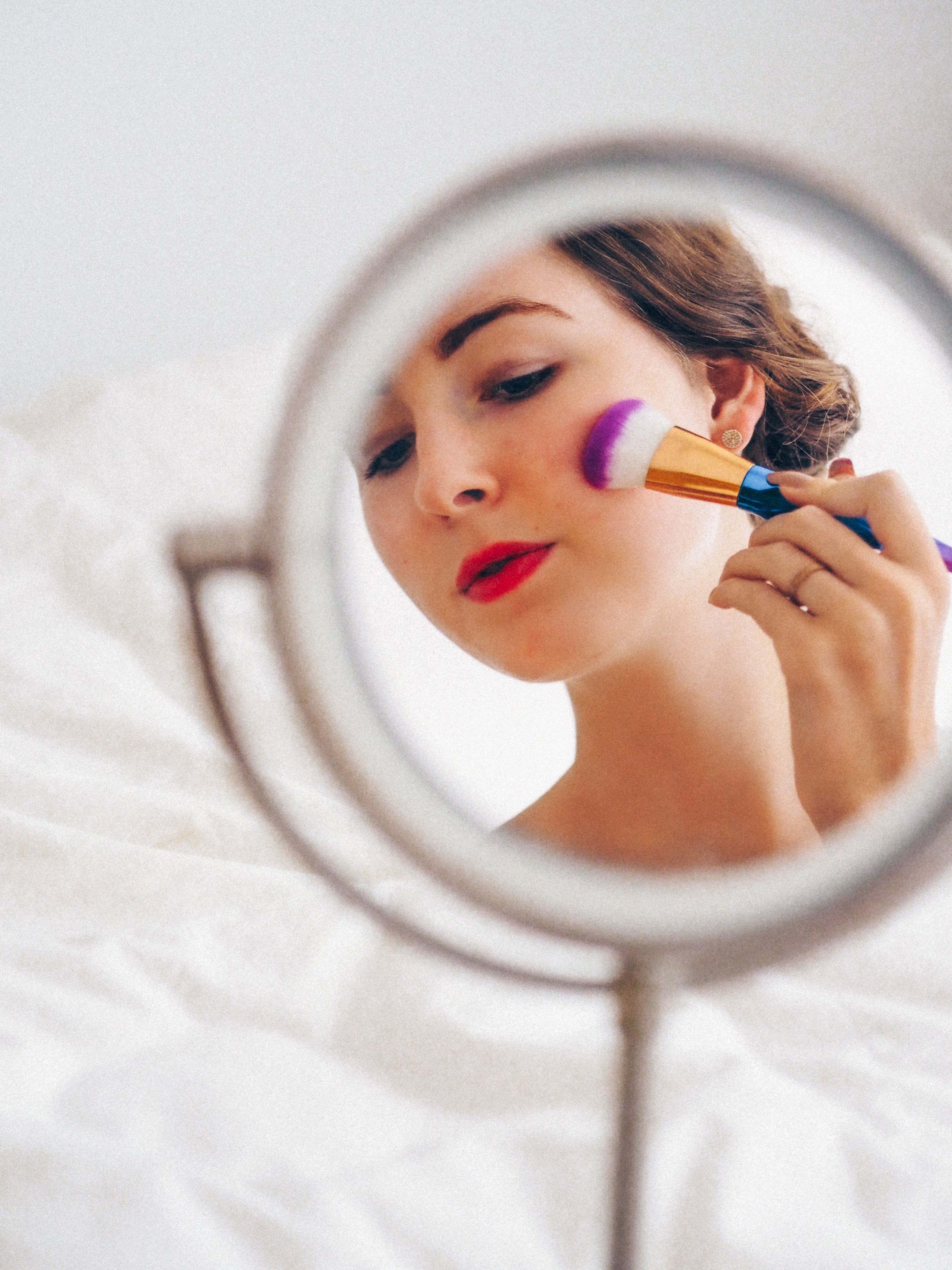 I recently walked into a mall to see a group of 16-year-olds sitting cross-legged outside a leading beauty store, trying out a newly bought mascara with their black and white bags in hand. No care to what the world might think. Happy in their own space, doing what mattered to them.
I recently walked into a mall to see a group of 16-year-olds sitting cross-legged outside a leading beauty store, trying out a newly bought mascara with their black and white bags in hand. No care to what the world might think. Happy in their own space, doing what mattered to them.
If there’s one word that accurately describes Gen Z it has got to be ‘authentic’. Love them, hate them, cringe at them – but you can’t ignore how authentic they are in every way they present themselves. Coming from a generation where our IG feeds are carefully curated moments matched to perfect palettes and filters, this need to be authentic is brave and inspiring.
In a time, fraught with uncertainty, braving climate disasters they need to live in but had nothing to do with, and surviving a pandemic, Gen Z struggles with a childhood lost. They also actively seek more honesty in representation, how they show up and being vulnerable both in person and on the internet. A far cry from us millennials who are stuck in a cycle of needing to show our best selves, self-posturing and hiding behind ‘it me’ memes when we wish to ‘truly’ express ourselves.
BE AUTHENTIC
So where and how does this authentic narrative fit when brands are traditionally used to selling an idea of perfection that has been crafted to fit within neatly packed boxes of consumerism? How does a category like beauty approach a mindset that doesn’t automatically lend itself to buying into beauty narratives but instead questions the very foundations the industry has built itself on?

To begin with, A staggering 80 per cent of Gen Z globally believe that beauty is about confidence and not appearance. They seek real narratives in the way people are represented and endorse the ones who speak real too. Rare Beauty is a much-loved example of a brand that has been built on authenticity.
Right from the who and why of the brand, its out and open association with mental health, including its 1 per cent donation promise towards the Rare Impact Fund on each purchase, to their product naming and design (round top lids to make it easy for someone with arthritis to open, lipsticks called ‘Kind Words’) to being a completely vegan and cruelty-free brand – Rare Beauty is demonstrative of what Gen Z stands for, believes in and where the future needs to be headed.
CLEAN TEST
Clean beauty is practically a Gen Z mandate today. Globally, Gen Z is expecting ‘cruelty free’ to be a default offering of the products they buy and are also increasingly more conscious of other sustainability promises such as sourcing of ingredients.
Interestingly, a millennial favorite, Glossier failed the clean test with Gen Z when they launched Glossier Play which was rooted in creativity, play and self-expression. What went wrong? They used non-biodegradable glitter, excessive packaging, and celebrity partnerships when historically they are a brand built on community itself.
An interesting example of a brand closer to home is Peacefull by Salama Mohamed, a content creator who has vitiligo and wanted to develop something that was both inclusive and native to the Middle East. Peacefull is a gender-neutral skin care brand with ingredients sourced from South Korea. Sounds like any other K Beauty brand? You’d think yes until you read about how it tests its products in a heat chamber for 3 months to ensure they can withstand extreme temperatures in the region.
The authenticity and clean narrative are here to stay. With Generation Z keeping it real, standing up for what they believe in and not falling for common consumer traps that us millennials have admittedly done in the past, brands need to adapt to what Gen Z believes in or risk becoming irrelevant.
As I end this piece, I simultaneously share a new meme on my Instagram, this one is about starting up a podcast to decode if people are mad at me. While I hide my vulnerabilities behind memes and long captions, here’s to Generation Z that is saying it as it is and having mighty expectations from a planet and people who have consistently let them down, giving them new fights to battle. Keeping it real. Questioning routine consumerism ideals. Working towards building a world of beauty that is kinder, more inclusive and which has space for everyone – scars, blemishes, and all.
By Sumana Suresh, Rain









